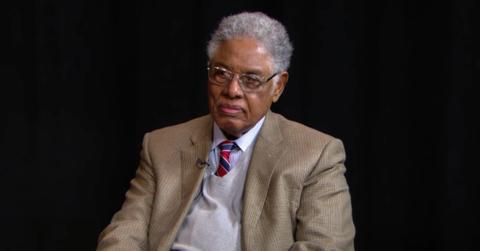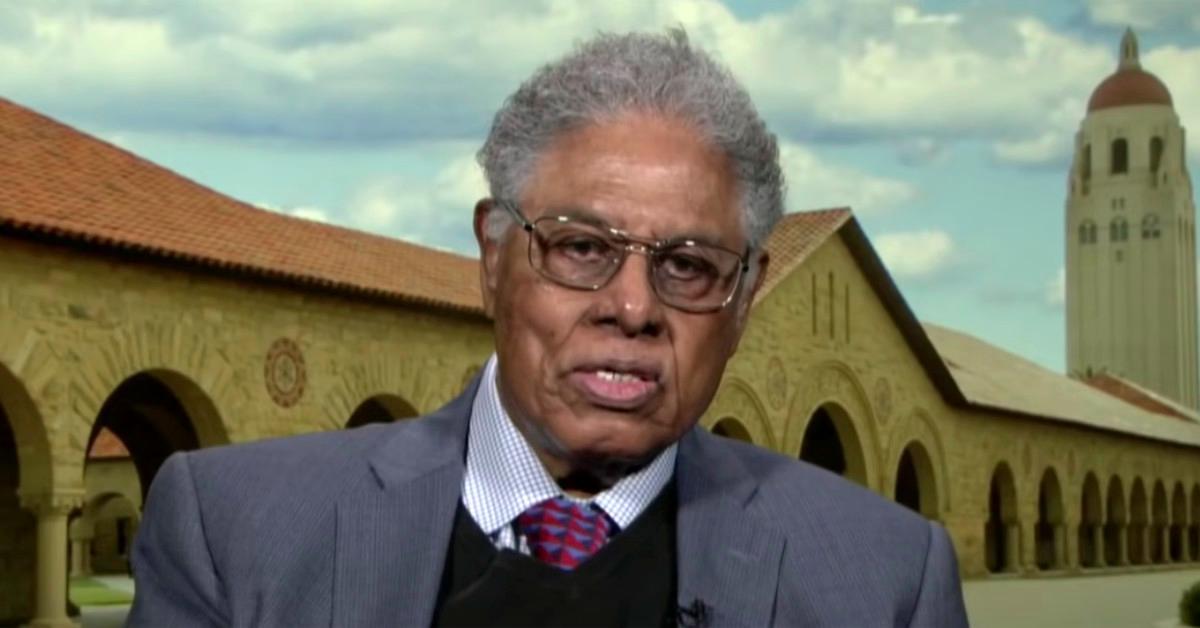Get to Know Thomas Sowell, Hoover Institution Fellow and Libertarian Firebrand
Read Thomas Sowell’s comments about net worth. What are the other much-discussed viewpoints from this economist and Hoover Institution senior fellow.
March 9 2021, Published 3:56 p.m. ET
Economist Thomas Sowell and his conservative-libertarian opinions about race and economics are still topics of discussion half a century after the release of his first book. Sowell is the subject of a new documentary, Thomas Sowell: Common Sense in a Senseless World, and an upcoming biography by Jason L. Riley, Maverick: A Biography of Thomas Sowell.
Read on to get answers to frequently asked questions about this Hoover Institution senior fellow—whom one critic accused of “giving aid and comfort to America’s racists”—as well as more information about his views on Black people’s net worth, welfare, and multiculturalism.
What Thomas Sowell said about net worth
In a 2011 National Review column, Sowell cited Pew Research Center data at the time that showed that Black people not only had far less net worth than white people on average but that their net worth was lower in 2009 than it was in 2005. “Recent statistics on the average wealth, or net worth, of blacks are a painful reminder that rhetoric favoring blacks does not mean that politicians using such rhetoric are actually helping blacks,” he said.
Sowell pointed out that the value of homes owned by Black people accounted for the “most drastic loss of net worth.” He said that campaigns by the media and various government agencies for fairer mortgage-lending standards “worked so well that many blacks got loans that they could not have gotten otherwise” but that “everybody lost out when the resulting risky mortgages led to a collapse of the housing market.”
Why Thomas Sowell is controversial
As Sowell did with his criticism of affirmative action and his skepticism about systemic racism, he also spurred controversy with his 2015 book, Wealth, Poverty and Politics: An International Perspective. He argued that people are poor not because of discrimination or oppression but because they “don’t or won’t produce,” as The Washington Post's Steven Pearlstein wrote in a review.
“His suggestion that there are still legions of working-age Americans who live better on welfare than by working is nothing more than a right-wing canard,” Pearlstein added. “What we also learn from Wealth, Poverty and Politics is that there is apparently no level of inequality of income or opportunity that Thomas Sowell would consider unacceptable.”
Thomas Sowell hasn't won the Nobel Prize
Sowell hasn't won the Nobel Prize, which is a scandal in the mind of Forbes’ Steve Forbes, who loved the same book that Pearlstein criticized.
“No one alive has turned out so many insightful, richly researched books,” Forbes wrote in 2015.
“His latest [Wealth, Poverty and Politics: An International Perspective] is another triumph of crackling observations that underscore the ignorance of our economists and policymakers. His take on how culture, geography, politics and social factors affect how societies progress—or don’t—will rile those addicted to political correctness but leave everyone else wiser.”
Thomas Sowell is married
Sowell is married to attorney Mary M. Ash, according to Encyclopedia.com. He has two children named John and Lorraine.
He mentioned his wife in a controversial 2007 column in which he described the two of them meeting “Navajo youngsters” who didn’t know where Pittsburgh or Philadelphia was. In that column, he expressed concern that the boys’ education “does not equip them with the knowledge that is needed to bring their natural abilities to the point where they are capable of doing all sorts of things in all sorts of places.”
In a response published by HuffPost, Native American Journalists Association founder Tim Giago wrote, “If Mr. Sowell had taken more than just a passing interest in the land he passed through, perhaps he would have discovered that the Navajo Nation has its own law enforcement, judiciary, government, elementary and high schools, and a wonderful college system all functioning with a high degree of intelligence, diligence and with a success that is the envy of many in Indian country.”


